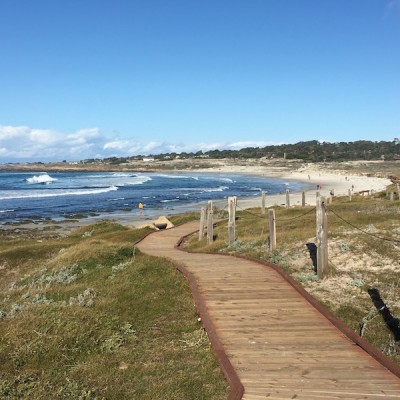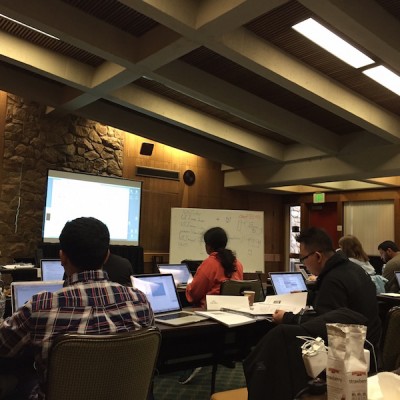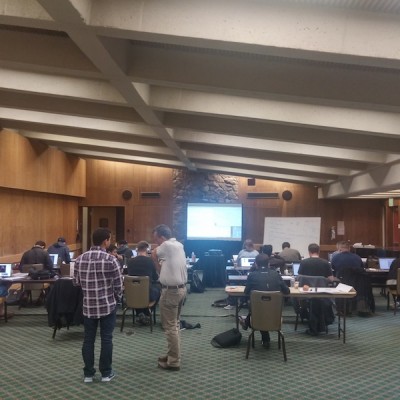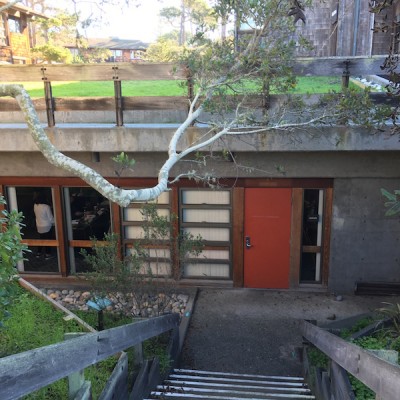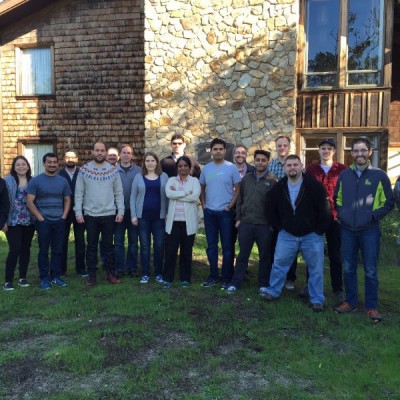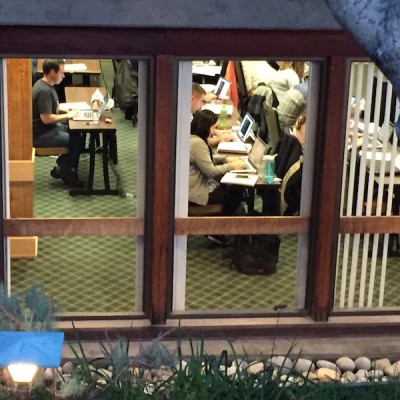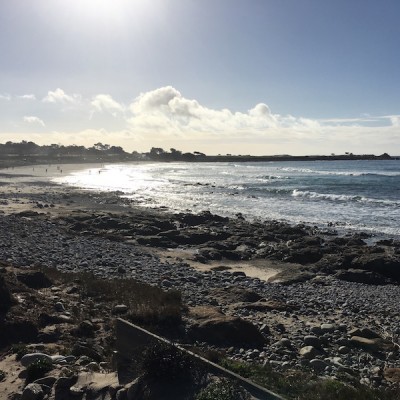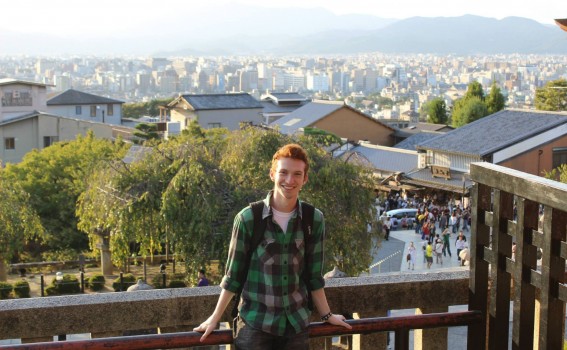The following post is by Benjamin Fallon ’16, a Computer Science major. Fallon used his AMS grant to take an intensive class on building apps for iOS in Pacific Grove, California.
At the end of January, I took off to Pacific Grove, California to take a week-long intensive course called “Beginning iOS with Swift,” or put colloquially, “Class for people who want to build iPhone apps.” The course was taught by industry-respected company Big Nerd Ranch, who offers a buffet of courses on the most in-demand technologies; writes award-winning books in Android and iOS development; and teaches engineers from places like Facebook, Spotify, and Airbnb. As their name suggests, Big Nerd Ranch offers their courses in naturally beautiful places where you can “get away from it all” and focus entirely on your learning.
Throughout my time at Colgate, I had been considering a lot of very different ideas about how to use my AMS grant. And while I’m sure I would have had a positive experience regardless of what I decided to do, I couldn’t have asked for a better, more valuable experience. As a Senior who will be graduating this May, I’m currently in the thick of job searching. So when I was deciding on my project during the Fall semester, I knew that I wanted to do something that would have long-term value and help me out professionally after graduation. About a year and a half ago, I started dabbling with Android development in my free-time, reading all of the free tutorials online and watching a bunch of Youtube videos, trying to learn just enough to get a functioning, even-if-totally useless app on my phone. Though this self-teaching was a tedious, challenging, and often frustrating experience, it was also fun, rewarding, and pretty darn cool. I was fascinated by the idea of being able to build some idea that your mind only recently constructed. I was fascinated how smartphones — and an entirely new industry — seemed to suddenly appear out of nowhere and became virtually ubiquitous in many places throughout the world; I remember when I was growing up and the Motorola RAZR came out for the first time…it was hot stuff at the time. But most of all, I was fascinated by the challenge and the puzzle-like nature of it all. After dabbling for about a year, I realized this could be a real career option. I started exploring more…following more blogs, watching more Youtube videos, trying to hack together some simple apps. After doing hours of web research on different ideas for my project, I stumbled upon the Beginning iOS with Swift class and I realized this is what I wanted to do. I had already dabbled in Android, and if I could get introduced to iOS I would have some solid experience under my belt as I entered the job market. I submitted my proposal, got approved for funding, and when the time came, I flew out to California.
The class was made up of about 20 students, ranging from young professionals to industry veterans. Many were sent by their companies, some looking to switch careers, but all were excited to learn what all the iOS development stuff was all about. In 2014, Apple released a new programming language called Swift that was meant to further simplify the process of writing software for iOS, OS X (and now watchOS and tvOS). Since its release, Apple has been encouraging developers to switch from Objective-C to Swift as they write their apps. Many developers who have used Objective-C extensively in the past were reluctant to make the switch, but momentum for the language has picked up, and all signs show that Swift is here to stay. For people like me who do not have prior experience with Objective-C, Swift is the clear choice for writing apps. I still need to be familiar with Objective-C since most of the existing codebase is written in it, but Swift is the future of making apps for Apple products.
Accordingly, the first two days of the class were all about the Swift language — how it works, what makes it unique, what programming constructs are available. After these two days of being thrown off the deep-end, it was time to see how Swift is used to actually make real iOS apps. The class was set up so we would go over a new topic and then take some time to complete exercises where we put it into practice building example apps. In other words, it was a series of lecture and lab sessions. Starting in the morning and with lab hours often extending well into the night, it was tiring; however, we made sure to take plenty of breaks to rejuvenate ourselves by taking walks along an absolutely stunning coastline. Throughout the week, we got to know everyone in the group better, as we ate our meals together and often got together to socialize after class was done for the day. We often talked about technology, sharing our knowledge, experiences, and viewpoints. Our instructor told us many stories from his long career in the tech industry. Being around people interested in the same industry was exciting and invaluable. It got me excited to graduate and start my career, working alongside people who also are excited about building things with code. It reminded me that what makes life fun and enjoyable is surrounding yourself with the right people. And perhaps most importantly of all, it motivated me to take what I learned from the week and run with it.
Apps coming soon to an app store near you.


